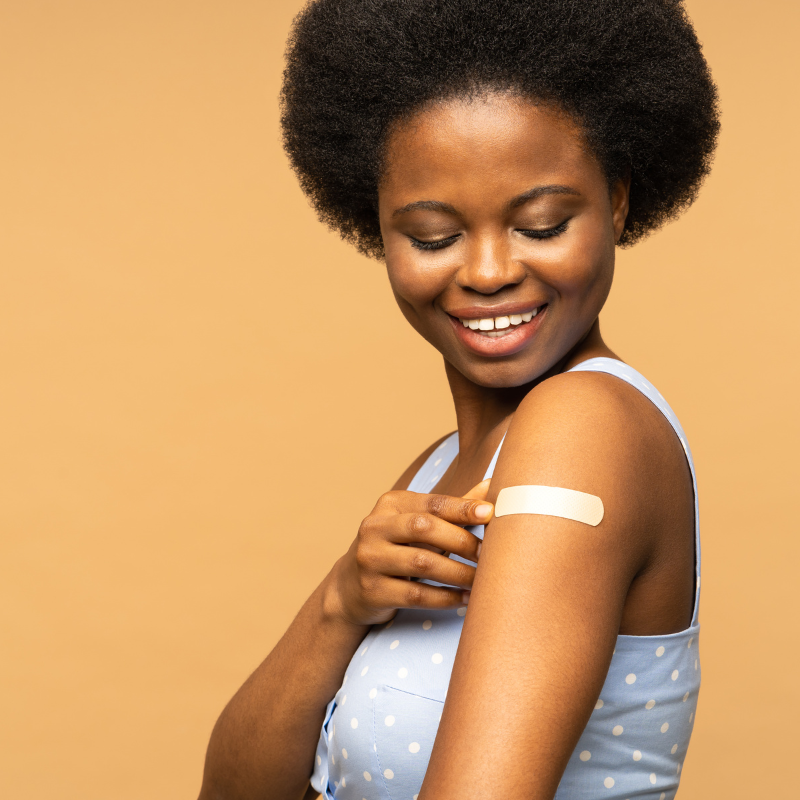Vaccinations and Covid-19
People with disabilities are in a high-risk category for getting sick with COVID because of co-occurring medical conditions. These conditions can include lung, heart, kidney disease, a weakened immune system, cancer, diabetes, some blood diseases, or conditions of the muscular or central nervous system; and, depending on the type and severity of the disability, individuals may have difficulty managing the disease or caring for themselves once they become ill. Autism is one of those high-risk disabilities for several reasons: many individuals have co-occurring medical conditions, have trouble communicating what is wrong (and/or can be non-speaking), and caring for themselves, and is hospitalized, would require a great deal of support.
COVID has become one of the top 10 causes of pediatric death, and tens of thousands of children and teens have been hospitalized because of the virus. While children and adolescents are typically at lower risk than adults of becoming severely ill or hospitalized from COVID, the effects of the virus are unpredictable. Medical and public health experts, including the U.S. Centers for Disease Control and Prevention (CDC) and the American Academy of Pediatrics, recommend that children six months and older get a COVID vaccine to help protect them from contracting and spreading the virus.

Talk to your healthcare provider or someone who you trust with other aspects of guidance for your / your child’s health. Tell your doctor what worries you have about being vaccinated. Your doctor has current, accurate information on vaccines and can answer your questions. Keep in mind that there is a thorough and careful process taken by federal regulatory agencies to ensure vaccines help protect from the coronavirus and other diseases such as flu, measles, and chicken pox.
Needle Anxiety: Did you know that about 25% of people have a fear of needles?
This rate may be even higher for people with disabilities. People with disabilities may be more sensitive to pain or have higher levels of anxiety than people without disabilities.
If needle anxiety is a barrier to getting the flu or COVID vaccine, there are effective strategies to help overcome needle anxiety:
- Schedule the appointment with a healthcare provider who is familiar to the person receiving the vaccine.
- Practice what will happen on the day of the appointment with a health professional or other trusted person. This helps with what to expect. Social stories or a visual schedule may help some people.
- Arrive early to the appointment. Feeling rushed can increase stress and anxiety.
- Bring comfort items such as music, a phone game, or a fidget toy.
- Talk to the health professional about any fears. This can be a doctor, nurse, or technician.
- Some people want to see the needle before a shot and other people do not. Talk to the health professional about what helps the person feel most comfortable.
- Ask the healthcare provider for adaptive pain management tools such as Shotblockers or a Buzzy©.
Some people might find it helpful to be distracted during the process through one of the following:
- Carrying on a conversation
- Listening to calm music
- Bringing a book to read or play a game on a phone or tablet
- Playing with a fidget
The information in this section was provided through a grant from the Vaccination Education Initiative (VEI) sponsored by The Autism Society of America. ASGA is a sub-grantee and participated in the VEI initiative, which addresses systemic barriers and promotes vaccine education, confidence, and access. Through the VEI, we strive to improve patient and population health by ensuring children, adults, and seniors with disabilities are included and supported.
The 2023 VEI is funded through a grant from the Aging and Disability Vaccination Collaborative (ADVC) and sponsored by USAging to increase access and uptake of vaccines with a focus on traditionally underserved communities such as the aging, BIPOC, Hispanic, LGBTQIA+, and rural populations with Autism and other disabilities.
For more information about needle anxiety, vaccination social stories, visual schedules, and other vaccination supports, visit ASGA’s VEI website.
